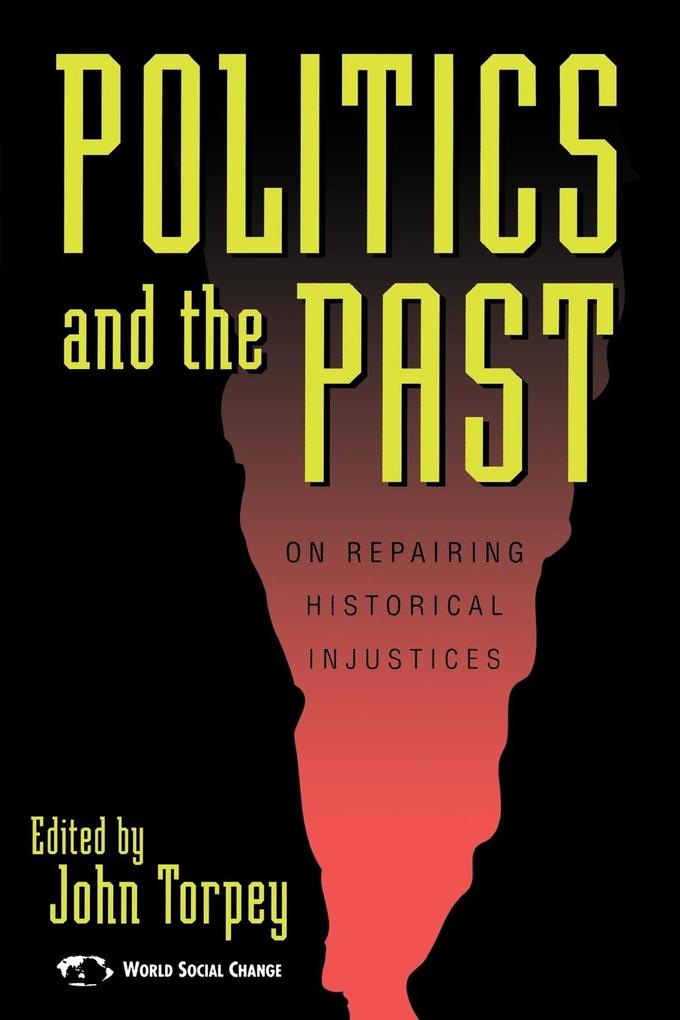
Zustellung: Mo, 23.06. - Do, 26.06.
Versand in 6 Tagen
VersandkostenfreiBestellen & in Filiale abholen:
Offering a nuanced, historically grounded, and critical perspective, this book presents a multidisciplinary exploration of the growing public controversy over reparations for historical injustices.
Inhaltsverzeichnis
Chapter 1 Preface and Acknowledgements Chapter 2 Chapter 1: Introduction: Politics and the Past Part 3 Part One: Historical and Theoretical Considerations on the Spread of Reparations Politics Chapter 4 Chapter 2: The Politics of Regret: Analytical Frames Chapter 5 Chapter 3: Coming to Terms with the Past Chapter 6 Chapter 4: Restitution and Amending Historical Injustices in International Morality Chapter 7 Chapter 5: Reflections on Reparations Part 8 Part Two: Reparations Politics: Case Studies Chapter 9 Chapter 6: Calculating Slavery Reparations: Theory, Numbers and Implications Chapter 10 Chapter 7: War Compensation: Claims Against the Japanese Government and Japanese Corporations for War Crimes Chapter 11 Chapter 8: Competing Discourses on Reparations: Human Rights, Aboriginal People and the Australian Government Chapter 12 Chapter 9: Negotiating New Relationships: Canadian Museums, First Nations, and Cultural Property Chapter 13 Chapter 10: Is Truth Enough? Reparations and Reconciliation in Latin America Chapter 15 Chapter 11: Moral Integrity and Reparations for Africa Chapter 16 Chapter 12: Wealth of Nations: Aboriginal Treaty-Making in the Era of Globalization Chapter 17 Chapter 13: Victims of Genocide, Crimes against Humanity, and War Crimes in Rwanda: The Legal and Institutional Framework of Their Right to Reparation Part 18 Part Three: Judging the Past Chapter 19 Chapter 14: Justice, History, and Memory in France: Reflections on the Papon Trial Chapter 20 Chapter 15: Overcoming the Past? Narrative and Negotiation, Remembering and Reparation: Issues at the Interface of History and the Law
Mehr aus dieser Reihe
Produktdetails
Erscheinungsdatum
14. Januar 2003
Sprache
englisch
Seitenanzahl
328
Reihe
World Social Change
Herausgegeben von
John Torpey
Verlag/Hersteller
Produktart
kartoniert
Gewicht
534 g
Größe (L/B/H)
229/152/19 mm
ISBN
9780742517998
Entdecken Sie mehr
Pressestimmen
This informative book...looks at a variety of methods and case studies dealing with past injustices, or "reparations politics."...[Offers] a superb introductory essay by the editor...[and] a useful addition to the growing literature on the subject. Recommended. CHOICE
Bewertungen
0 Bewertungen
Es wurden noch keine Bewertungen abgegeben. Schreiben Sie die erste Bewertung zu "Politics and the Past" und helfen Sie damit anderen bei der Kaufentscheidung.


















